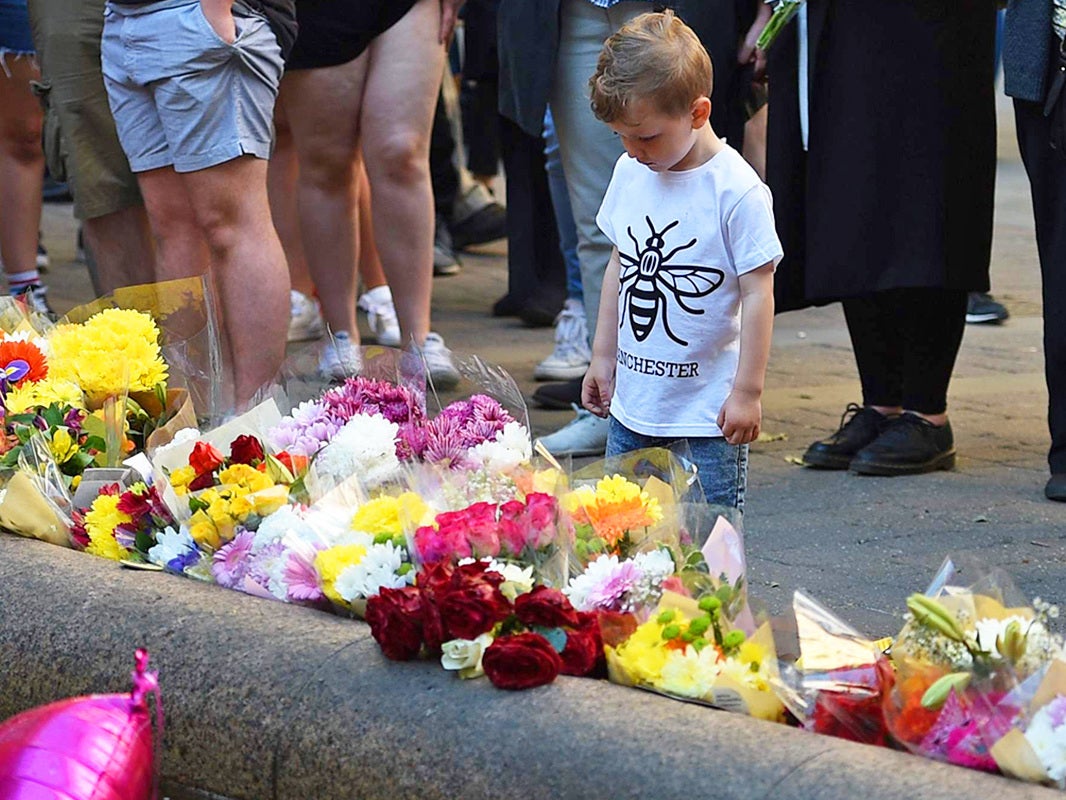Manchester Arena attack inquiry could be delayed because of missing police statements, hearing told
Inquiry chair says delay is ‘simply not fair’ more than two years after bombing

Your support helps us to tell the story
From reproductive rights to climate change to Big Tech, The Independent is on the ground when the story is developing. Whether it's investigating the financials of Elon Musk's pro-Trump PAC or producing our latest documentary, 'The A Word', which shines a light on the American women fighting for reproductive rights, we know how important it is to parse out the facts from the messaging.
At such a critical moment in US history, we need reporters on the ground. Your donation allows us to keep sending journalists to speak to both sides of the story.
The Independent is trusted by Americans across the entire political spectrum. And unlike many other quality news outlets, we choose not to lock Americans out of our reporting and analysis with paywalls. We believe quality journalism should be available to everyone, paid for by those who can afford it.
Your support makes all the difference.A public inquiry into the Manchester attack could be delayed because police have failed to provide statements requested seven months ago, a hearing was told.
Relatives of the 22 victims killed in the 2017 bombing called the delay “diabolical”, while the retired judge leading the inquiry said it was “simply not fair to the families”.
Paul Greaney QC, counsel to the inquiry, told a hearing that witness statements relating to command and control issues were first requested from 12 key individuals at Greater Manchester Police (GMP) in April.
The force was told to provide them in August, but only six have been given so far and were not emailed across until Thursday evening.
Fiona Barton QC, representing GMP, made a public apology for the delay to around 30 relatives of the victims who were at Friday’s hearing.
“May I turn to the families and apologise profusely for the delay,” she told the hearing at Manchester Town Hall.
From across the room, one relative responded: “Not accepted.”
Stephen Howe, whose wife Alison was killed in the bombing, said the police response was “diabolical” more than two years since the bombing.
Peter Weatherby, representing some of the families, said: “This sorry tale Mr Greaney indicates is frankly not good enough.”
Sir John Saunders, a retired High Court judge chairing the inquiry, said: “If there’s delay and it is due to GMP, I have no doubt there will be extremely extensive public criticism of GMP.
“What I’m absolutely insistent on is this inquiry has to start on 6 April.
“It is simply not fair to the families or to anyone else or to Manchester in general.”
Ms Barton said the statements had not been provided for a variety of reasons, including an officer on sick leave and IT issues.
She said the outstanding statements would be provided by 6 December.
They were requested as part of inquests into the victims’ deaths, which were to examine the actions of the police and security services before the attack, security at the arena and the emergency response.
But the inquests were converted into a public inquiry in October, where evidence will be heard behind closed doors after it was ruled public disclosure of some information would present a national security risk.
Mr Weatherby noted that GMP had been criticised over the fatal shooting of an unarmed man, Anthony Grainger, in August.
He said the report from a judge accused the force of a “lack of candour” and said senior officers had “misled a criminal case” as a result of Mr Grainger’s death.
Mr Weatherby added: “One might have thought the chief constable would have sent down the line, the clearest of instructions that the response in respect of this Manchester bombing, had to be done to the highest possible level.”
Ms Barton said it was “regrettable” Mr Weatherby had raised the subject of candour over the question of delay.
Ms Barton said: “There is not any suggestion of a lack of candour relating to GMP in relation to the preparation of this case. I utterly rebut any suggestion of a lack of candour.”
Mr Greaney also said there was a second problem with “gaps” in the 550 hours of radio transmission recordings from the night of the bombing provided by Greater Manchester Police.
Suicide bomber Salman Abedi killed 22 people and injured hundreds more by detonating a rucksack bomb at the end of an Ariana Grande concert on 22 May 2017.
Previous reports revealed he had been monitored by security services while travelling to and from Libya, and that crucial intelligence may have been misinterpreted in the months before the atrocity.
The bomber’s younger brother, Hashem Abedi, will go on trial in January charged with 22 counts of murder for allegedly assisting the plot, which he denies.
A further preliminary hearing for the public inquiry will be held on 28 January.
Additional reporting by PA